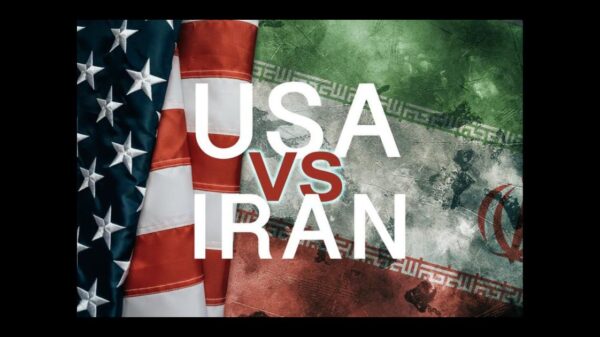From his perch on the U.S. Senate Foreign Relations Committee, U.S. Sen. Marco Rubio, R-Fla., continued his efforts to ensure the United States does not provide nuclear weapons to Saudi Arabia.
At the end of last week, Rubio teamed up with U.S. Sen. Bob Menendez, D-NJ, to call on the Government Accountability Office (GAO) to “open a review into the Trump Administration’s negotiations with the Kingdom of Saudi Arabia, as well as any negotiation by the executive branch since December 2009, regarding a civil nuclear cooperation agreement.”
The senators wrote Comptroller General Dodaro to have the GAO “investigate reports that some of the negotiations under the Trump administration have been carried out without the oversight required by the Atomic Energy Act and in an opaque manner inconsistent with previous nuclear agreement negotiations” including “concerns about the Trump administration’s process for negotiating the nuclear cooperation agreement, known as a 123 agreement, and about the broader security implications of a Saudi nuclear program.” The senators insisted it “was unusual for the Department of Energy (DOE) to appear that it is leading the negotiations, instead of the State Department, and were troubled by the administration’s lack of consultations with Congress” and expressed concern about “specific proposals or initiatives presented by DOE officials in their discussions with the Saudis were reportedly not being fully vetted across the interagency for security, proliferation, and other concerns.
“Members of the Senate Foreign Relations Committee have a range of concerns surrounding a potential 123 agreement with Saudi Arabia, including regional security and nuclear proliferation concerns associated with a Saudi civilian nuclear program,” wrote the senators. “Before the committee approves a 123 agreement with Saudi Arabia, members would want to be assured that any agreement includes rigorous nonproliferation safeguards and other conditions to prevent nuclear cooperation with Saudi Arabia from undermining or threatening regional or international security.
“In particular, some Members hope and expect that any 123 agreement with Saudi Arabia will conform with the tougher ‘Gold Standard’ created by the 123 agreement with the United Arab Emirates of December 2009, in which the Emirates agreed to forswear uranium enrichment and spent-fuel reprocessing, and to sign, ratify and implement the Additional Protocol with the International Atomic Energy Agency,” the senators added. “The UAE also reserved the right to renegotiate a new 123 agreement if the United States concludes a civil nuclear cooperation agreement with another state in the Middle East that does not uphold the Gold Standard.”
Earlier in the month, Rubio teamed up with U.S. Sen. Ed Markey, D-Mass., to bring out the “Saudi Nuclear Nonproliferation Act.” Over in the U.S. House, U.S. Rep. Brad Sherman, D-Calif., is pairing up with U.S. Rep. Ted Yoho, R-Fla., to champion to the proposal which “increases congressional oversight over any civil nuclear cooperation agreement – or 123 agreement – between the United States and Saudi Arabia.” There have been several reports of the Trump White House working with Saudi Arabia on the matter.
“Until the Saudi government agrees to adhere to the ‘Gold Standard’ for responsible nuclear behavior, allows the IAEA’s Additional Protocol nuclear inspections, and also proves they are willing to be a responsible partner that respects the basic human rights of their citizens, the United States should suspend all talks related to a civil nuclear cooperation agreement with Saudi Arabia,” Rubio said when he brought out the bill. “This important bill will ensure Congress has oversight over and the right to affirmatively approve any civil nuclear cooperation agreement with Saudi Arabia, and also continues to press the Saudis for full accountability in the brutal murder of Jamal Khashoggi.”
“Saudi Arabia’s expressed interest in entering into a 123 Agreement with the United States will be held to the same stringent criteria as previous agreements,” said Yoho who leads Republicans on the U.S. House Asia and Pacific Subcomittee. “Any accord with the Kingdom of Saudi Arabia needs to be approved by Congress. Proper oversight is key to making sure all enumerated criteria – laid out in this bill – are met before any 123 agreement can be reached.”
Kevin Derby can be reached at Kevin.Derby@floridadaily.com


















